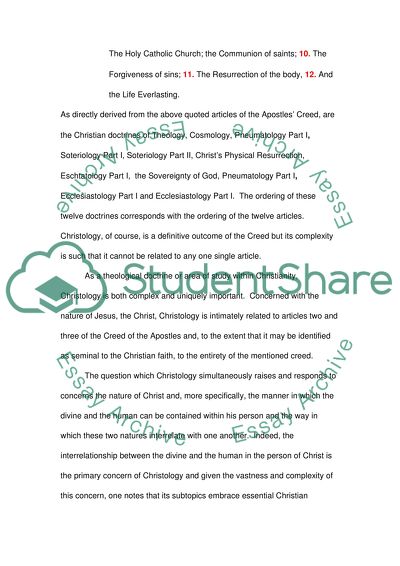Cite this document
(“Apostle Creed Essay Example | Topics and Well Written Essays - 1250 words”, n.d.)
Retrieved from https://studentshare.org/miscellaneous/1500498-apostle-creed
Retrieved from https://studentshare.org/miscellaneous/1500498-apostle-creed
(Apostle Creed Essay Example | Topics and Well Written Essays - 1250 Words)
https://studentshare.org/miscellaneous/1500498-apostle-creed.
https://studentshare.org/miscellaneous/1500498-apostle-creed.
“Apostle Creed Essay Example | Topics and Well Written Essays - 1250 Words”, n.d. https://studentshare.org/miscellaneous/1500498-apostle-creed.


